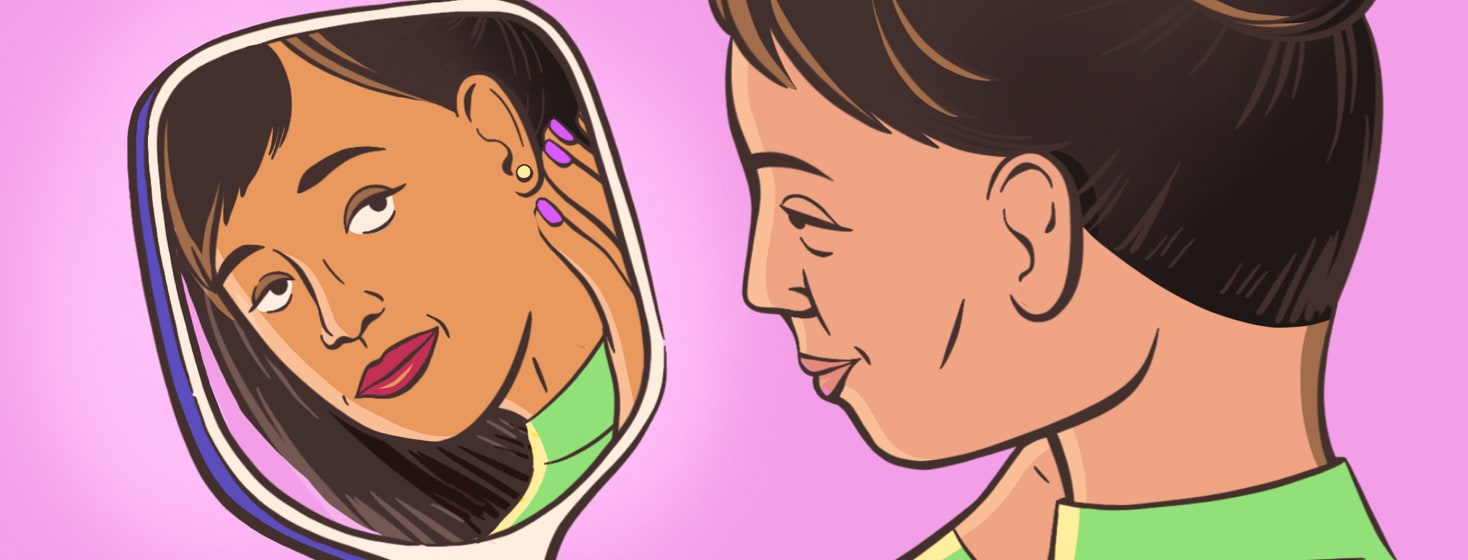Makeup and Feeling Less Self-Conscious in the Inactive Phase of TED
I have always loved wearing makeup. I have written a lot about how makeup was a very important tool that helped me emotionally during my active phase of thyroid eye disease (TED). But besides that, makeup has always been something that I enjoyed.
My history with makeup
My grandmother was a makeup artist, and my mother was an artist and professional face painter (think Cats on Broadway - her work was stunning). I grew up acting, and on the stage the makeup I’ve worn has ranged from minimal street makeup to glittery fairies and blood covered vixens. I also used makeup in my day to day life. Some people enjoyed coffee and reading the newspaper, I liked the routine of doing my makeup and fixing my hair.
Also, makeup has always been a tool for me. I have always looked fairly young, and I look even younger without makeup (my skin is also quite pale, so I used to joke that without makeup I looked like the ghost of a Victorian child). I have found it necessary in many situations to present myself in a certain way to combat both sexism and ageism and get people to take me seriously - I try to dress professionally, I have my hair and makeup done, and I speak firmly and confidently.
A shift in 2019
Things changed with TED in 2019 and then the COVID-19 pandemic in 2020. With makeup being such an important - no, an essential - tool for me in relationship to TED, I continued to do it every day.
It helped me feel and look more like myself and gave me a sense of stability when my body was spiraling out of control. When New Yorkers were isolating in their homes for weeks, I tried to maintain some sense of normalcy and routine, but after my TED-related surgeries I stopped doing my makeup every day. That’s something I wouldn’t have dared to do in the worst days of my active phase.
This or That
Do/Did you wear makeup in the active phase of TED?
But I was staying home more, and even when I did start going out, I would wear a mask in public. I basically felt invisible. No one could see how big my eyes were in relationship to the rest of my face, so whatever - no makeup felt fine. It felt even normal in a way, and the mask helped me feel less self-conscious about TED. And I got the extra bonus of being able to use eye drops throughout the day without fear of ruining my eyeliner.
Not wearing makeup as much during my inactive phase of thyroid eye disease
I have now reached an interesting point - My eyes are different that they were before TED, and I still use makeup as a tool for a variety of reasons. But sometimes I just don’t wear makeup, especially to activities in the morning. I bump into friends on the street. In work-related zoom meetings I sometimes just throw on a pair of glasses (I’m chuckling as I type this - does that make me look more professional? Maybe it just takes away some attention from my eyes and makes me feel better).
So do I feel self-conscious? Yes, but I have realized it is not always related to TED and how my eyes look, which had been my reality for years. It may also be because my decades long routine is changing. I am getting used to people seeing me both with makeup and without - and that can be vulnerable, especially knowing how much TED has changed my appearance. I would definitely feel more comfortable not wearing makeup as the old me, but the reality is that I will never look like I did before TED.
But some days I am tired or just do not feel like doing my makeup, and that feels okay. It is nice to (dare I say it?) care a little less about what I look like (gasp, I said it!).

Join the conversation